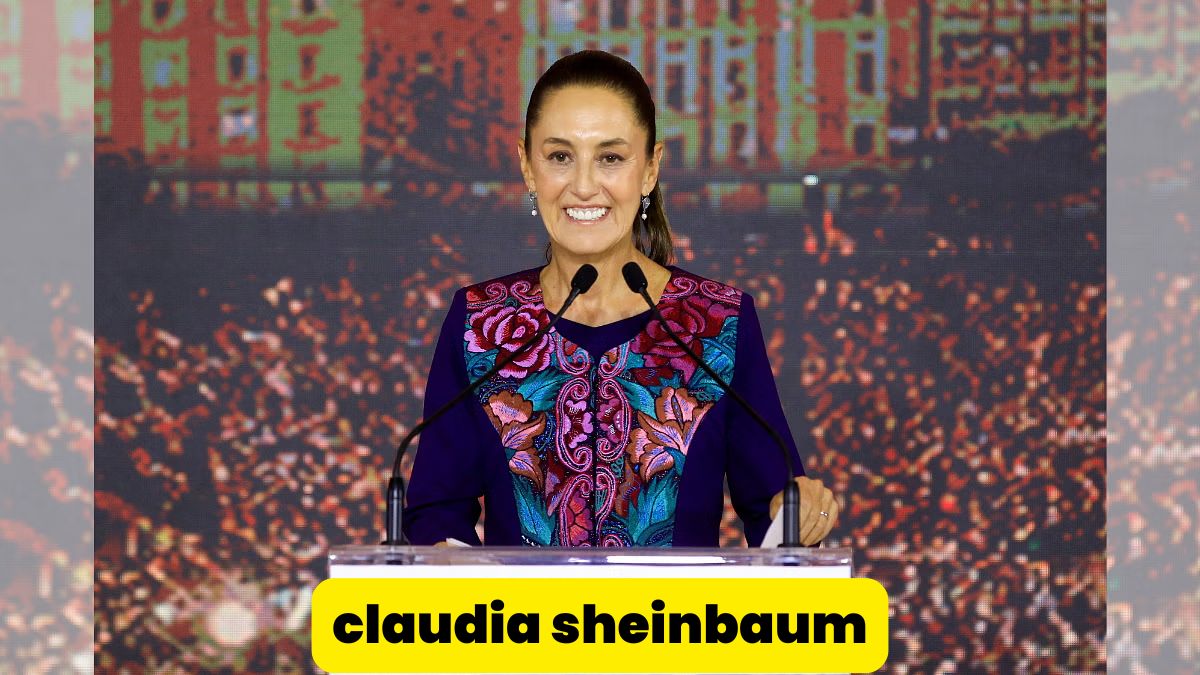Claudia Sheinbaum is a prominent Mexican politician and the first woman to serve as the mayor of Mexico City, one of the most important political positions in the country. She has become a notable figure in Mexican politics due to her leadership, progressive policies, and strong background in science and environmental activism.
Early Life and Education
Claudia Sheinbaum was born on June 24, 1962, in Mexico City. She comes from a family with a strong academic background, which influenced her own career path. Sheinbaum attended the National Autonomous University of Mexico (UNAM), where she earned a degree in Physics. Her academic focus was in energy, and she later went on to receive a doctorate in environmental engineering. This scientific and technical background has influenced much of her policy work, especially in the areas of sustainability and climate change.
Early Career and Scientific Contributions
Before venturing into politics, Sheinbaum was an academic and researcher. She worked at several institutions, including UNAM and the Institute of Engineering, where she contributed to studies on environmental issues and energy policy. She is also known for her work on the development of solar energy technologies, making her a key advocate for environmental sustainability and climate action in Mexico.
Her early career in science helped shape her political views, especially her commitment to addressing environmental challenges and her belief in the importance of scientific research in policy development.
Political Career
Claudia Sheinbaum’s entry into politics began in the 1990s, when she became involved with the National Regeneration Movement (MORENA), a political party founded by former Mexico City Mayor and former President Andrés Manuel López Obrador. Sheinbaum initially served as an advisor to López Obrador when he was the head of the Government of the Federal District from 2000 to 2005.
In 2015, Sheinbaum made her first major move into electoral politics by running for the position of Mexico City’s Head of Government. She was elected as mayor of Mexico City in 2018, becoming the first woman to hold this position.
Mayor of Mexico City
As the mayor of Mexico City, Sheinbaum has focused on several key issues that have shaped her administration. Some of her major initiatives include:
Environmental Sustainability
Sheinbaum’s scientific background has made her a strong advocate for environmental policies. During her tenure as mayor, she has prioritized sustainability, promoting the use of electric vehicles, expanding the city’s public transportation system, and increasing green spaces. She has worked to improve air quality and reduce the city’s carbon footprint through various clean energy and pollution-reducing initiatives.
Public Safety
Sheinbaum has also made public safety a significant focus of her administration. She has sought to improve police presence in high-crime areas and strengthen the criminal justice system. Her efforts have included increased investment in technology for public safety and a focus on addressing the root causes of crime, such as poverty and inequality.
Social Programs and Poverty Reduction
Sheinbaum’s government has worked to implement social programs aimed at reducing inequality and improving the living conditions of the city’s poorer residents. She has supported initiatives to improve housing, healthcare, and education, particularly for marginalized communities.
Leadership Style
Claudia Sheinbaum is known for her pragmatic and evidence-based leadership. Her scientific background has influenced her approach to governance, with a focus on data-driven solutions to complex issues. She is often seen as a detail-oriented and methodical leader, focused on long-term planning rather than short-term political gains.
Her leadership style has garnered both praise and criticism. Supporters admire her dedication to solving complex urban issues, while critics argue that her approach can sometimes be overly technical and slow to address immediate challenges. Nevertheless, Sheinbaum’s rise to power and her approach to governance have solidified her as one of Mexico’s most influential political figures.
Claudia Sheinbaum and the 2024 Presidential Election
Claudia Sheinbaum has been considered a strong candidate for the 2024 Mexican presidential election. She has already garnered significant support within MORENA and is viewed as a potential successor to President Andrés Manuel López Obrador. Her policies and leadership as mayor of Mexico City have made her a front-runner in the race, and she is seen as the candidate who can continue López Obrador’s Fourth Transformation (4T), a political project aimed at deeply transforming Mexican society through social justice, anti-corruption, and economic reforms.
Personal Life and Legacy
Claudia Sheinbaum has often spoken about the influence of her personal and family values in shaping her political views. As a mother and wife, she has maintained a relatively low-profile personal life while focusing on her professional endeavors. Her achievements have inspired many, especially women in Mexico, as her role as the first female mayor of Mexico City represents a significant milestone for gender equality in the country.
Sheinbaum’s legacy, especially as a leader focused on science, sustainability, and social welfare, will likely continue to influence Mexican politics for years to come. Whether or not she becomes the next president, her impact on Mexico’s political landscape is undeniable.
Conclusion
Claudia Sheinbaum has emerged as one of Mexico’s most prominent and influential political figures. From her early work as a scientist and environmental advocate to her groundbreaking role as the first woman to serve as Mexico City’s mayor, Sheinbaum has proven herself to be a strong leader. As she continues to shape the future of Mexico City and beyond, her policies and leadership will undoubtedly have a lasting impact on the country’s political, social, and environmental landscape.

